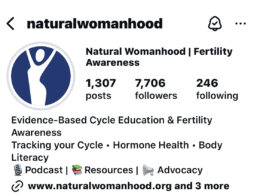A British teen has died of a blood clot in the brain just weeks after starting oral contraceptives to manage severe period pain.
By all appearances, 16-year-old British teen Layla Khan had an incredibly promising life ahead of her. She graduated high school early and had already begun college classes, with hopes of eventually getting into Oxford University. According to a GoFundMe page launched by her cousin, Alicia Binns, “[Layla] started college this year and just in 3 short months had made so many new friends. Some of her closer friendships made her more outgoing than ever, and she was also finding love in a new relationship. She started working for the first time, and even at work, she made some close bonds.” Doors were really opening for Khan.
Along with the other big changes in her life, she sought to address the debilitating period pain she’d suffered for years. Her doctor prescribed the Pill. Having heard multiple friends say that birth control had alleviated their period symptoms, Khan took her first pill on November 25th, 2023. Initially, the birth control seemed to do exactly what it was supposed to. Binns wrote, “she was pleased that [the pills] had very quickly helped with an issue she has had to put up with for such a long time.” The first clue that something wasn’t right came just 10 days later.
Doctors assumed a stomach bug, not birth control, was the cause of severe vomiting
On December 5th, Khan began to experience migraines, a known potential side effect of hormonal birth control, per the Mayo Clinic. Three days later, the migraines had intensified so much that she began vomiting. When Khan was no better two days later, her parents called the 111 hotline for Great Britain’s National Health Service. But the call screener assured the distressed parents that Layla’s symptoms were not concerning and advised them to call her primary care doctor in the morning. At the doctor visit the following day, during which Khan threw up more than once, she was misdiagnosed as having a stomach bug and sent home with a prescription for anti-nausea medication.
That same night, Khan’s mother heard the teen “screaming in agony” in her bed. Unable to reach the primary care doctor by phone, Khan’s parents took her to the nearest emergency room. When Khan attempted to use the bathroom before they left, she collapsed on the ground, unable to walk.
“[A]fter a great deal of time” at the hospital, staff discovered that Khan had a blood clot in her brain. The clot caused such terrible swelling that just two days later she was declared brain dead. Layla Khan was removed from life support on December 13th, 2023, and her family donated her organs in order to “save five other people’s lives before Christmas.” She left behind four younger siblings, including twin brothers less than a year old.
Other young women also died from blood clots connected to their birth control
Tragically, Khan isn’t the first young woman to die of a blood clot known or suspected to have been caused by hormonal birth control. The GoFundMe doesn’t explicitly state whether Layla Khan had any health conditions, like migraines with aura, that could drastically increase her chances of suffering a blood clot from her birth control. Based on her cousin’s description of her school, work, and lifestyle, she was presumably healthy and active. But, as previously reported by Natural Womanhood, so were Hope Johnson, Alexandra Williams, Julia West-Ross, Erika Langhart, Brittany Malone, and Alex Rowan. Each young woman died from birth control-related blood clots.
According to the National Blood Clot Alliance, the likelihood of an adult woman experiencing a blood clot each year of hormonal birth control use is low, just 1 in 3,000. Healthy teen girls, who have lower risks of blood clots than adult women in general, should be even less likely to experience a clot. But, like Layla Khan, millions of teens and adult women take hormonal contraception each year. Some of these girls and women will be impacted by a blood clot, which can lodge in a leg or lung or in the heart or brain.
A fraction of those clots will be fatal. The researchers behind a 2019 systematic review of literature on blood clot, stroke, and heart attack risk due to birth control in young women ages 15-24 stated ,“The risks found would project 300–400 women dying from using [hormonal contraception] each year in the United States” [1].
What options do girls or adult women have for period pain and other reproductive health issues?
300-400 deaths each year from birth control is a sobering statistic, especially because these young women should have had their whole lives ahead of them. Women and girls deserve better, and, fortunately, better options do exist. A teen girl who learns to track her menstrual cycle and chart biomarkers like cervical mucus, basal body temperature (BBT), or urinary hormone levels accumulates a wealth of personal health data that reflects her whole body —not just her reproductive—health. In the hands of a restorative reproductive medicine-trained healthcare provider, her chart can provide important clues to assess and diagnose the root causes of problems like period pain, heavy bleeding, and irregular cycles. Rather than Band-Aiding cycle problems with hormonal birth control that causes its own set of issues, some potentially fatal, restorative reproductive medicine aims to accurately identify and effectively treat root causes.
If you yourself or a woman or girl you care about is suffering period problems, book a free 20-minute phone call with one of Natural Womanhood’s experienced and certified fertility awareness instructors. You won’t receive medical advice, but you will come away from the call confident in your understanding of what steps you can take next. You have options for addressing reproductive health problems other than hormonal birth control.
Photo source: GoFundMe
References:
[1] Keenan L, Kerr T, Duane M, Van Gundy K. Systematic Review of Hormonal Contraception and Risk of Venous Thrombosis. The Linacre Quarterly. 2018;85(4):470-477. doi:10.1177/0024363918816683Additional Reading:
What’s the connection between migraines and hormones?
What causes painful periods, aka dysmenorrhea?
Teens and sex: Why the risks and side effects of birth control can be especially bad for teens
Wisconsin teen says that stroke was caused by hormonal birth control











